‘AITA for refusing to give leftovers to a potluck guest who did not chip in?’ ‘She ate two huge helpings.’
In your home, a similar one of many standard social events with the neighbors throughout the years, you held a potluck. The razzmatazz behind these dinners was usually BYOB or “everyone pitched in for the food.” One neighbor, Betsy, however, was very good at avoiding pitching in, drinking everyone else’s wine and consuming more than her share of food without bringing any of her own! Last time you hosted a get-together, Betsy neither brought anything nor ate her way through the leftovers to the point she sought to claim vast tufts of it for home. Finally, you put your foot down, divided up what was left and told Betsy she could have none. It ended up sparking a whole blow-out where Betsy walked out crying and never came back after that again. Your neighbors were split on whether you were in the right.
Read for more info Reddit

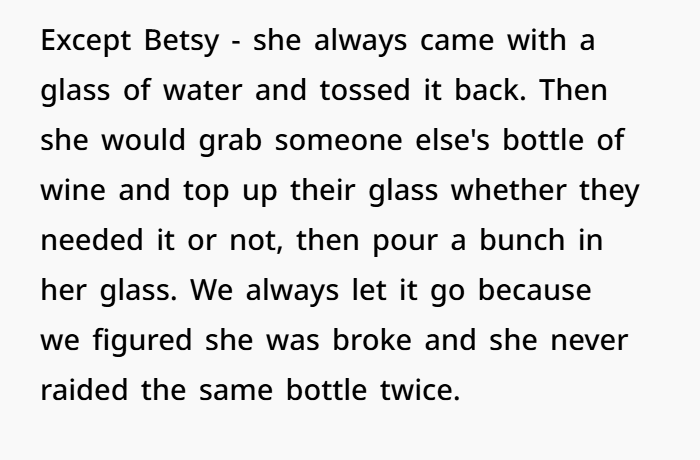
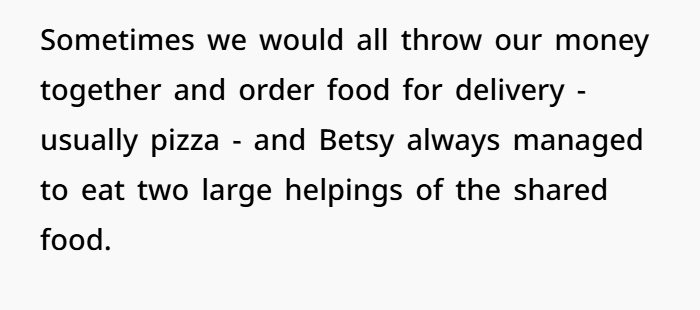

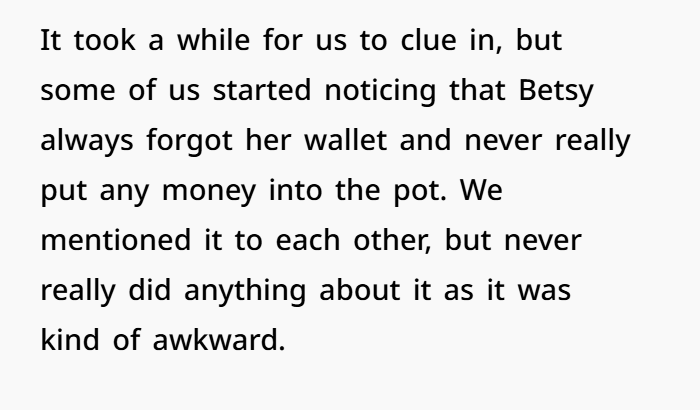
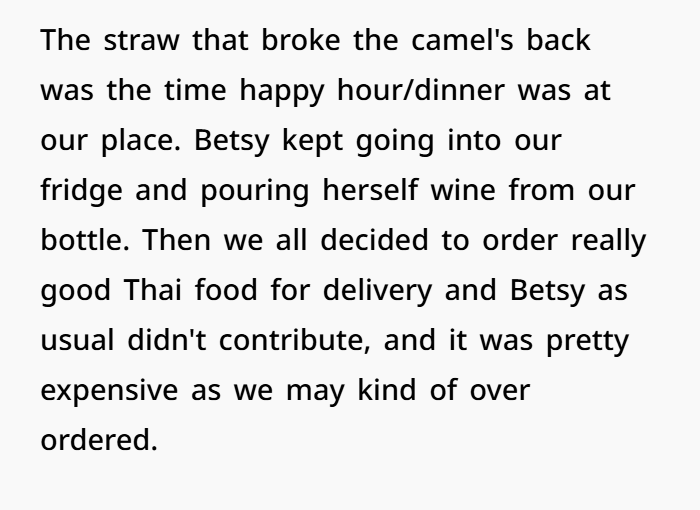

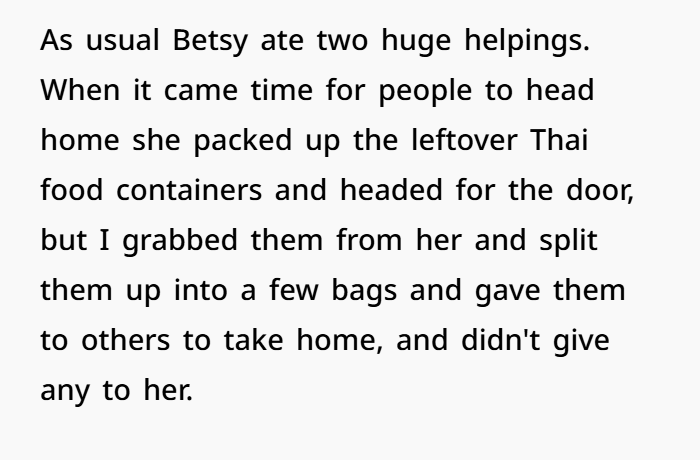
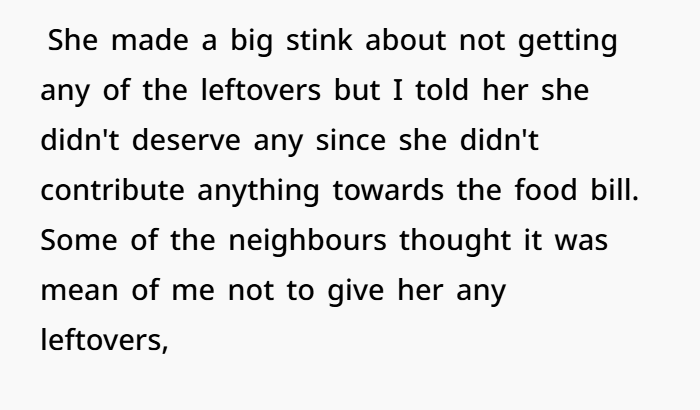
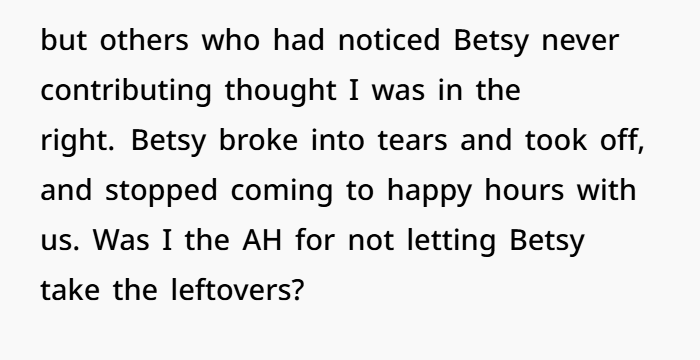
This is a nuanced dance between generosity, expectations, the giving of yourself, and boundaries, however. Communal events bring people together, however, they also require some consideration for one another and fairness. It seems that Betsy’s repeated behavior— abusing the goodwill of the group— somehow crossed the boundaries of these unspoken contracts. Following is more on the interplay involved:
Social Contracts and Reciprocity
Potluck-style unmeetups exist under an implicit compact: participants pay their way, either with money or by bringing value to the table (food, drinks, etc.). That would only work for her if Betsy did not repeatedly take more than her share while at the same time refusing to contribute.
Social psychology has found reciprocity to be central to group behavior. Especially harsher is the presence of this one who will always take but will never give anything to the table, making everyone feel resentment building up and the pressure of tension in the setting.
Economic and Personal Context
This would also explain why Betsy used to bring just water — suggesting financial problems. Had this been the case, perhaps an open and honest discussion regarding her circumstance might have resulted in a more reasonable solution, like an agreement that she could assist in other ways (e.g., helping set up or clean up) rather than pay.
But Betsy goes all out, literally serving herself…wine, or packing leftovers – definitely not simply remiss in helping with the project, but more akin to being an exploiter. This makes it feel even more unfair.
Handling Group Conflicts
So, redistributing the leftovers was just an instant answer to an age-old problem. As much as I can appreciate your frustration, it might have been better to raise the issue earlier, perhaps at a team meeting or a one-on-one with Betsy, to avoid the situation reaching this point.
Other group dynamics cases indicate that strong boundaries and an upfront approach are crucial. In another study exploring resource-sharing in workplace settings, explicit guidelines for sharing resources increased positive affect by reducing feelings of inequity and group cohesion.
Emotional Fallout
Betsy was crying and walking away — causing one to assume she must have been humiliated despite the ideation being her own. Even necessary public confrontations might ruin a friendship and create bad blood. You had no duty to consider Betsy’s feelings, but a more tempered response—saying little during the event and discussing her behavior with her privately later on—would have maintained group cohesion.
Here’s what top commenters had to say about this one:
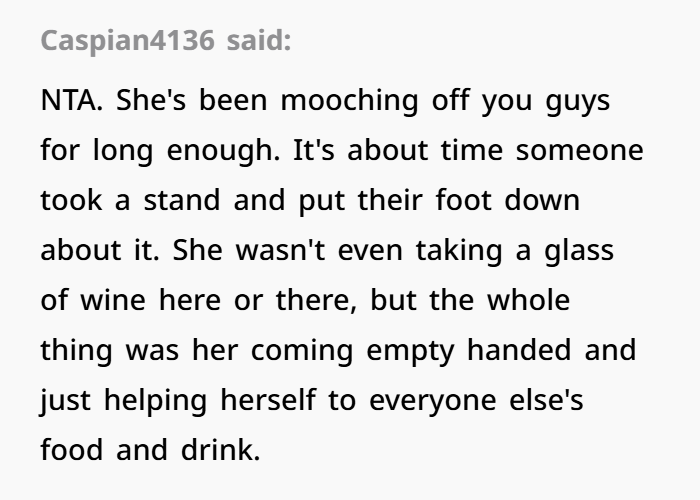

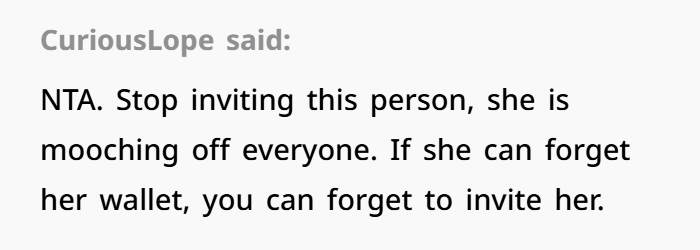
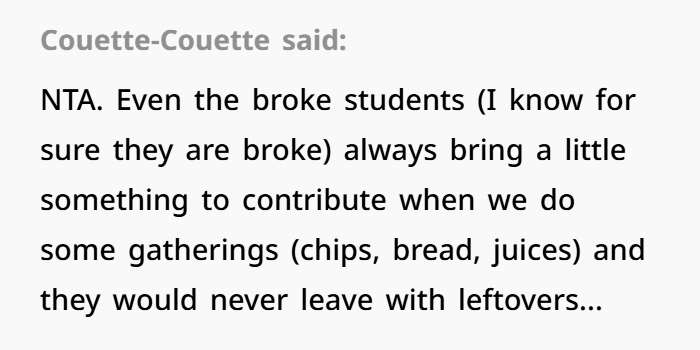
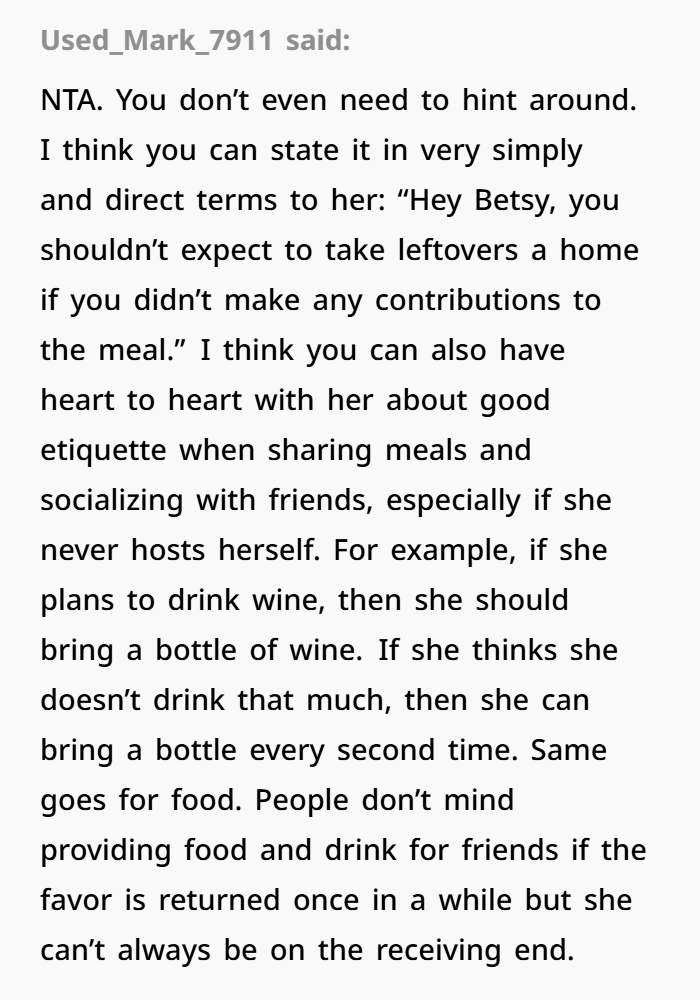
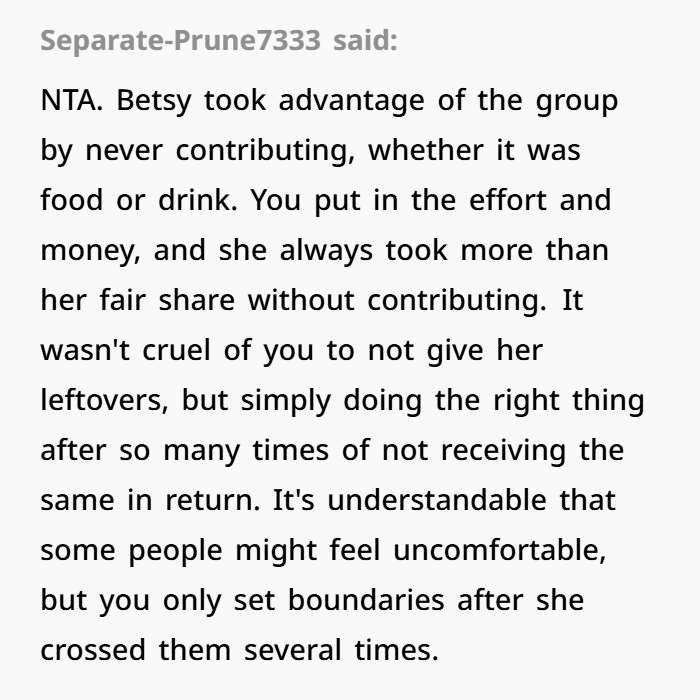
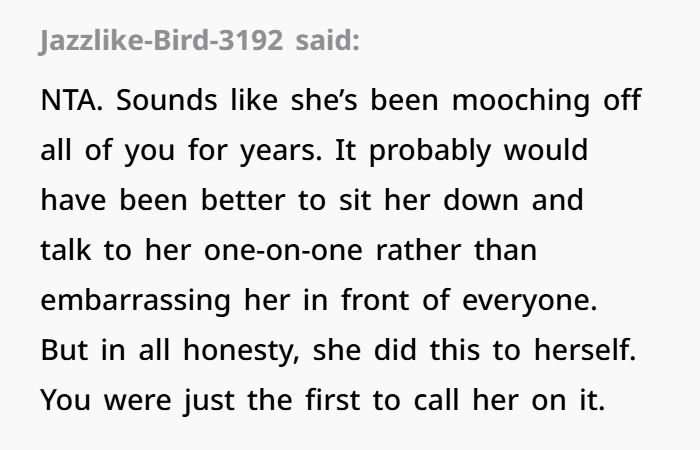
You were not the only ”bad guy” in this situation. It is totally understandable which you became frustrated with Betsy’s continual violation of group norms, and that your actions toward Betsy was in response to long-standing inequities. You certainly have a right to do that, but how you addressed it may have struck some of your neighbors as a bit heavy-handed, when it involved your housewarming party. Looking back, it may have been best to raise the issue earlier and off-camera to limit the amount of hostility.
FINAL EDIT TO ADD: So, YTA is a matter of perspective: you were right to be frustrated, but you could do better than that in your response.

